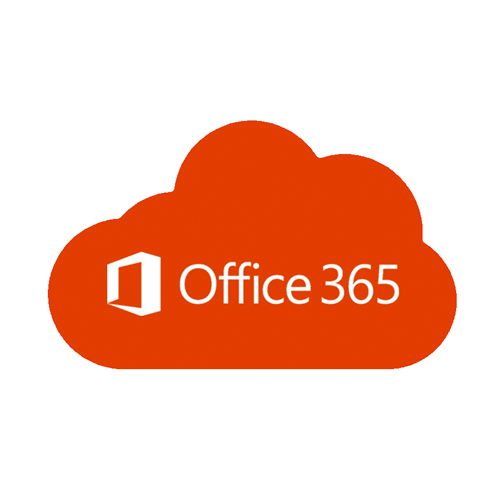Why Software Licenses Are Essential for Businesses in Sri Lanka
In today’s digital age, software is the backbone of business operations, enabling efficiency, scalability, and innovation. For businesses in Sri Lanka, staying competitive often depends on the software tools they use. However, leveraging these tools effectively requires adherence to one critical factor: software licensing. In this article, we’ll explore why software licenses are essential for businesses in Sri Lanka and how they contribute to legal compliance, operational efficiency, and long-term growth.
Contents
1. Legal Compliance and Avoiding Penalties
Using unlicensed software is a serious legal risk. In Sri Lanka, the Intellectual Property Act No. 36 of 2003 enforces strict regulations against software piracy. Businesses found using unlicensed software can face hefty fines, legal action, and reputational damage. A software license ensures that a business is legally authorized to use the software, protecting it from such risks. Investing in licensed software is not just about compliance; it’s about safeguarding the integrity of your business.
2. Access to Updates and Support
Licensed software comes with the advantage of regular updates and dedicated customer support. These updates often include security patches, new features, and performance improvements that keep your systems running smoothly. In contrast, unlicensed software often lacks access to updates, leaving businesses vulnerable to security breaches and operational inefficiencies.
In Sri Lanka, where cybersecurity threats are on the rise, having up-to-date software is critical. Licensed software providers offer robust support systems, ensuring that any technical issues are resolved promptly, minimizing downtime and enhancing productivity.
3. Enhanced Security
Data security is a top priority for businesses in Sri Lanka, especially with the increasing adoption of digital payment systems and online transactions. Licensed software is equipped with advanced security measures to protect sensitive business data from cyber threats. Unauthorized or pirated software, on the other hand, often contains malware or vulnerabilities that can compromise business operations.
By investing in licensed software, businesses can safeguard their data, protect customer information, and build trust with clients and stakeholders.
4. Optimized Performance and Scalability
Licensed software is tailored to deliver optimal performance for businesses. Whether it’s an enterprise resource planning (ERP) system, customer relationship management (CRM) software, or accounting tools, licensed versions are designed to handle the complexities of growing businesses. They offer scalability options, allowing businesses in Sri Lanka to expand their operations seamlessly without worrying about software limitations.
Moreover, licensed software often integrates better with other tools and systems, enabling businesses to create a cohesive and efficient digital ecosystem.
5. Supporting Innovation and Growth
Sri Lanka’s rapidly evolving business landscape requires companies to innovate continuously. Licensed software provides access to cutting-edge tools and features that foster innovation. From advanced analytics to AI-driven insights, these tools empower businesses to make data-driven decisions, improve customer experiences, and stay ahead of the competition.
Furthermore, by using licensed software, businesses contribute to the growth of the software industry. This support encourages developers and companies to create localized solutions tailored to the unique needs of Sri Lankan businesses.
6. Building a Professional Image
For businesses in Sri Lanka looking to establish credibility and trust, using licensed software is a must. Clients, partners, and stakeholders expect professionalism, and part of that expectation includes adherence to ethical and legal practices. A business that uses licensed software demonstrates responsibility and commitment to quality, enhancing its reputation in the market.
7. Cost Efficiency in the Long Run
While licensed software may seem like a significant investment initially, it proves cost-effective in the long run. Unlicensed software can lead to hidden costs, such as fines, legal fees, data recovery expenses, and productivity losses due to system failures or malware attacks. Licensed software, on the other hand, ensures smooth operations, reducing downtime and unexpected costs.
Conclusion
For businesses in Sri Lanka, software licenses are not just a legal requirement but a strategic investment. They ensure compliance, enhance security, support growth, and optimize performance. By prioritizing licensed software, businesses can protect their operations, foster innovation, and build a trustworthy brand.
Whether you’re a small startup or an established enterprise, make the smart choice to invest in licensed software. Not only will it shield you from legal and security risks, but it will also empower your business to thrive in Sri Lanka’s competitive marketplace.



 Windows 11
Windows 11 Windows 10
Windows 10 Windows 8
Windows 8 Windows 7
Windows 7 Windows XP
Windows XP
 Microsoft 365
Microsoft 365 Office 2019
Office 2019 Office 2013
Office 2013 Office 2010
Office 2010 Project 2021
Project 2021 Project 2019
Project 2019 Project 2016
Project 2016 Visio 2021
Visio 2021 Visio 2019
Visio 2019 Visio 2016
Visio 2016
 Server 2008
Server 2008 SQL Server
SQL Server
 Avast
Avast Utility & Tools
Utility & Tools PDF Editor
PDF Editor CAD & 3D, 2D
CAD & 3D, 2D Graphics/Drawing
Graphics/Drawing Microsoft 365
Microsoft 365 Office 2021
Office 2021 Office 2019
Office 2019 Office 2013
Office 2013 Office 2010
Office 2010 Server
Server
